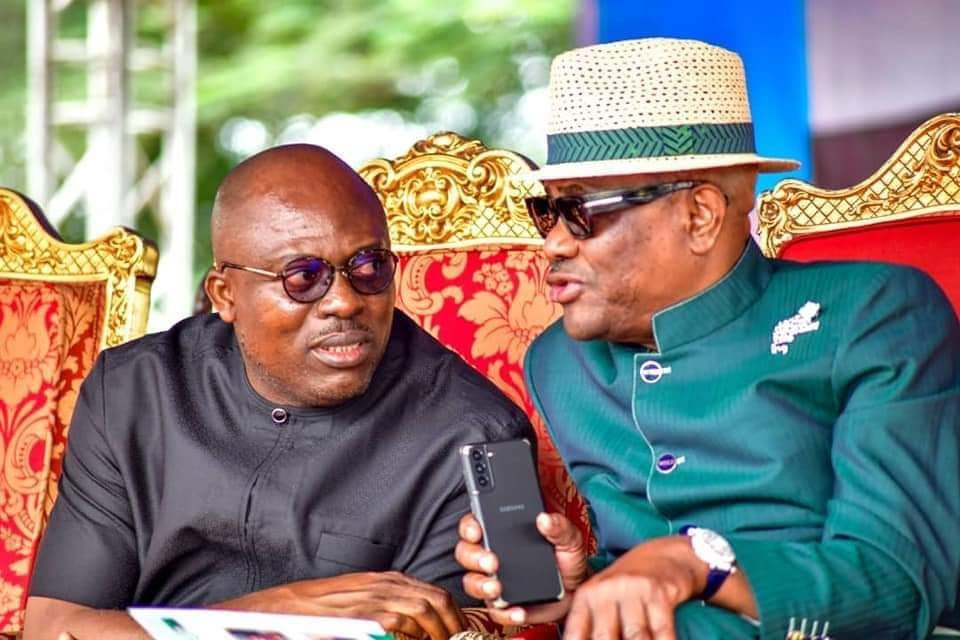The political landscape of Rivers State has been marked by a complex and evolving relationship between Nyesom Wike, the Minister of the Federal Capital Territory, and Siminalayi Fubara, the suspended Governor of Rivers State. Despite their apparent political rift, Wike has publicly affirmed Fubara as his political son, emphasizing a bond that transcends their recent disagreements. In an interview with BBC Pidgin, Wike clarified the nature of his political battles, stating that his focus was not on Fubara himself, but rather on those he perceives as manipulating the suspended governor against him.
Wike’s assertion that Fubara is his “boy” and “son” underscores a paternalistic relationship that has shaped their political trajectories. This dynamic suggests a history of mentorship and guidance, with Wike playing a significant role in Fubara’s political ascent. However, their relationship has been strained by recent events, including Fubara’s suspension as governor by President Bola Tinubu following the declaration of a state of emergency in Rivers State. Despite these challenges, Wike’s public pronouncements indicate a desire to reconcile with Fubara and to protect him from what he perceives as negative influences.
The core of Wike’s contention lies in his belief that certain individuals are exploiting Fubara for their own political gain. He accuses these unnamed actors of “pushing” Fubara against him, suggesting a deliberate attempt to sow discord and undermine their relationship. Wike characterizes his actions as a fight against those who seek to “steal what they did not work for,” implying that these individuals are motivated by greed and a desire to usurp power. He frames his political battle as a necessary measure to expose and defeat these forces, emphasizing his determination to “defeat them to the final stage.”
The ongoing political crisis in Rivers State reflects the intricate interplay of power, ambition, and personal relationships. Wike’s declaration of war against those he believes are manipulating Fubara adds another layer of complexity to the already turbulent political scene. By publicly claiming Fubara as his son while simultaneously targeting those around him, Wike is attempting to navigate a delicate balancing act. He seeks to maintain his influence and authority while preserving a semblance of unity within his political camp.
Reports of Fubara tendering apologies to Wike suggest a potential thaw in their relationship. This development could signify a willingness on both sides to bridge their differences and find common ground. However, the underlying tensions and power struggles that have fueled the political crisis remain unresolved. The future of Rivers State politics hinges on the ability of its key players to navigate these complex relationships and forge a path towards stability. The outcome of Wike’s declared war against Fubara’s alleged manipulators could significantly impact the political landscape of the state and the balance of power within the ruling party.
The political situation in Rivers State remains fluid and unpredictable. The interplay between Wike and Fubara, along with the influence of other political actors, will continue to shape the trajectory of the state. The long-term consequences of Wike’s actions and the ultimate fate of Fubara’s governorship remain to be seen. The ongoing political drama highlights the challenges of governance and the complex dynamics of power in a volatile political environment. The situation calls for careful observation and analysis to fully understand the unfolding events and their implications for the future of Rivers State.














